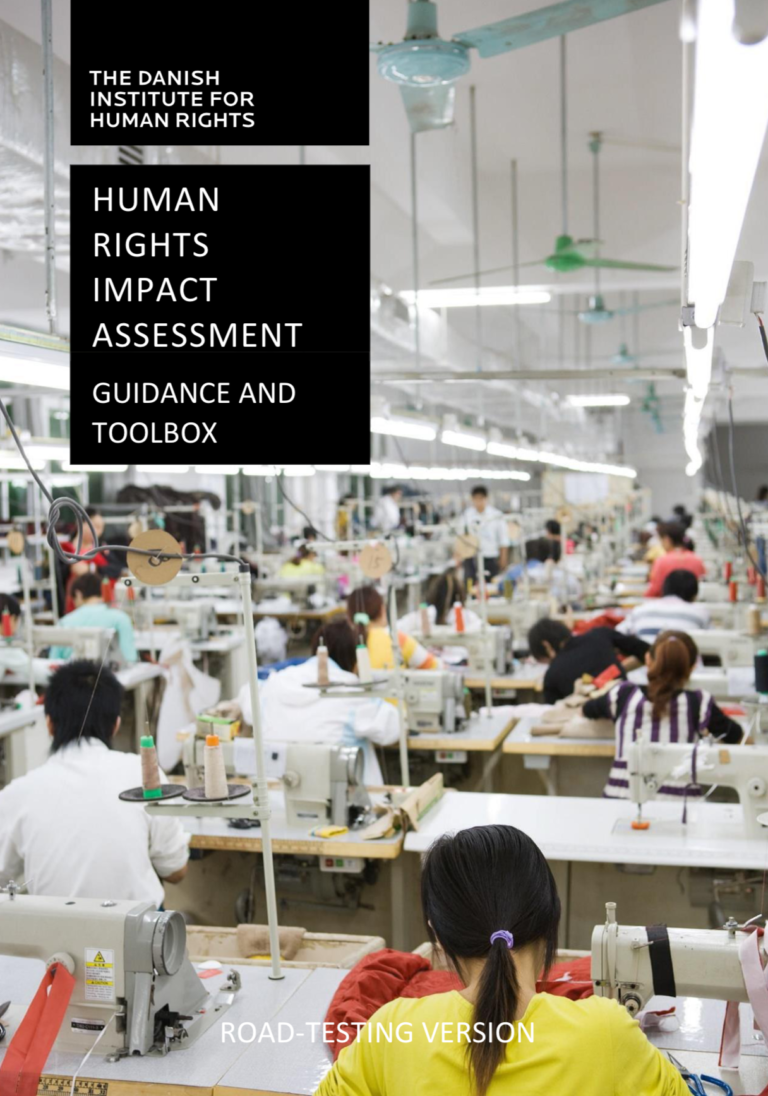The purpose of this Guidance and Toolbox is to provide those who are involved in conducting, commissioning, reviewing or monitoring Human Rights Impact Assessments (HRIA) of business projects and activities with guidance and practical tools; with the view to ensuring that such assessments apply a human rights-based approach and are consistent with the United Nations Guiding Principles on Business and Human Rights (UN Guiding Principles).
With increased attention being given to the accountability of businesses for their human rights impacts, HRIA has gained traction as one approach available to the private sector, non-government and civil society organisations (NGOs and CSOs), governments and other stakeholders, to assess and evaluate the impacts of business activities on the human rights enjoyment of rights-holders, such as workers and communities. In the business and human rights context, the UN Guiding Principles have been one key driver for HRIA development.
The process outlined is modelled on HRIA undertaken for large-scale private sector business projects conducted at the project- or site-level (e.g. factory, mine site, hotel, oil & gas plant, including the supply chain and ancillary infrastructure as relevant). As such, it may need to be adapted and scaled to suit the particular business project or activities in question. Whilst the Guidance and Toolbox in its entirety outlines a process for stand-alone HRIA (i.e. impact assessment that focuses exclusively on human rights), stakeholders may also wish to draw on specific components when working to integrate human rights into other types of assessments (e.g. environmental, social and health impact assessments).
To access the full interactive toolkit, click here.
Attached below is an explanation of the toolkit, outlining its purpose and how it can be used.

